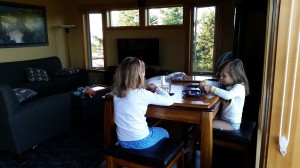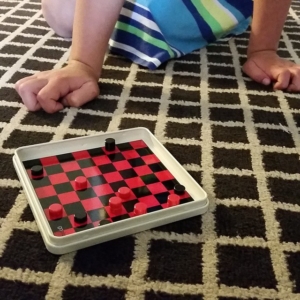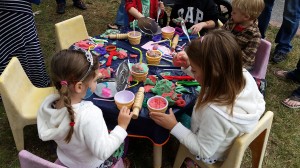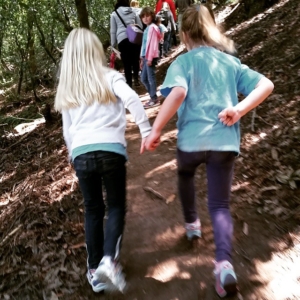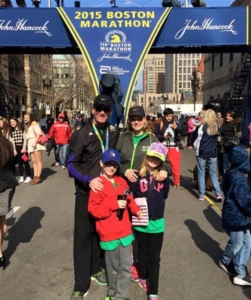
The Rossi family (courtesy of TODAY).
By now you likely have heard of the Rossi family—the Pennsylvania family that pulled 9-year-old twins out of school to go and watch Dad run in the Boston Marathon earlier this month.
Had they done this all quietly, neither you, nor I, nor anyone else in the United States would be talking about it. But, well…the dad is a part-time radio personality in his home region, and let’s just say the family didn’t exactly shy away from making the episode into a MAJOR deal.
I’m not going to review all the facts of the case here; you can read some pretty good rundowns online (such as here and here). The CliffsNotes: The parents, Jack and Victoria Rossi, wrote a note excusing their third-graders for the absences in conjunction with the family trip. After the race, the school principal, Rochelle Marbury, wrote a now-famous letter in which she stated that her district “does not recognize family trips as an excused absence.”
What happened next was the unfortunate part. Rossi wrote a response to the letter, posted it on his quasi-public Facebook page (again, people, even with privacy settings, FACEBOOK IS NOT PRIVATE), and the thing went viral. Since then he and his wife have been on talk shows, and the entire episode has de-evolved into a complete shitshow.
In the process, IMHO, we’ve lost sight of the major issue: Should family trips be excused absences?
I’ve blogged about this before (here, for instance), and, considering I travel for a living, I likely will blog about it again. (Heck, we’re pulling L out of a half-day of school next month so the four of us in this family can go on a vacation/assignment.) My take: Family trips are NOT excused absences. But that shouldn’t stop us from taking them if we think the trips are important and worth taking.
This means I don’t fault Rossi for taking his kids. It means I don’t think there’s anything wrong with Rossi’s rationale/reasoning for why he did it. Here’s a snip from his “letter” to the principal:
“In the 3 days of school they missed (which consisted of standardized testing that they could take any time) they learned about dedication, commitment, love, perseverance, overcoming adversity, civic pride, patriotism, American history culinary arts and physical education…They also experienced first-hand the love and support of thousands of others cheering on people with a common goal.”
Heck, as a runner, I’ll even side with the guy for taking his kids because he wanted them at the finish.
But for him to attack the district for failing to bend its own rules, for wigging out because the principal didn’t genuflect at him for being such an “incredible” and “progressive” dad—I have to ask: Who in the hell does this guy think he is?
Choosing travel over school is a personal decision. It brings with it high reward—learning about dedication, commitment, love, perseverance, and all those other things Rossi mentioned in his note. It also carries high risk—kids fall behind on the curriculum, kids miss out on projects, kids may run afoul of school attendance policies. If we as parents aren’t prepared to deal with the consequences of our decisions on this issue, we shouldn’t be making such bold decisions at all.
Put differently, if Rossi was going to have such a problem with the principal’s reaction to the absences, perhaps he should have thought twice about pulling his kids out of school in the first place.
To Rossi’s credit, he told TODAY that he’s not angry at the school for writing the note and recognizes that the principal is “doing what she has to do,” but instead is taking issue with the district’s inflexible attendance policy.
Again, to that I say this: The rules are the rules, and they apply to everyone. Even local celebrities who qualify for Boston.
The lesson here for traveling parents is twofold. First, do your homework and investigate your district’s attendance policy before you pull your kids out for a trip. Second, take ownership of your decision, whatever that decision might be, and be prepared to deal with the consequences gracefully (especially since your kids will be watching).
The Rossi children—like most Americans—probably see their mom and dad as heroes. Sadly, at least from my perspective, the mom and dad are nothing more than a pair of whiners. You made your bed, people. Now lie in it.


